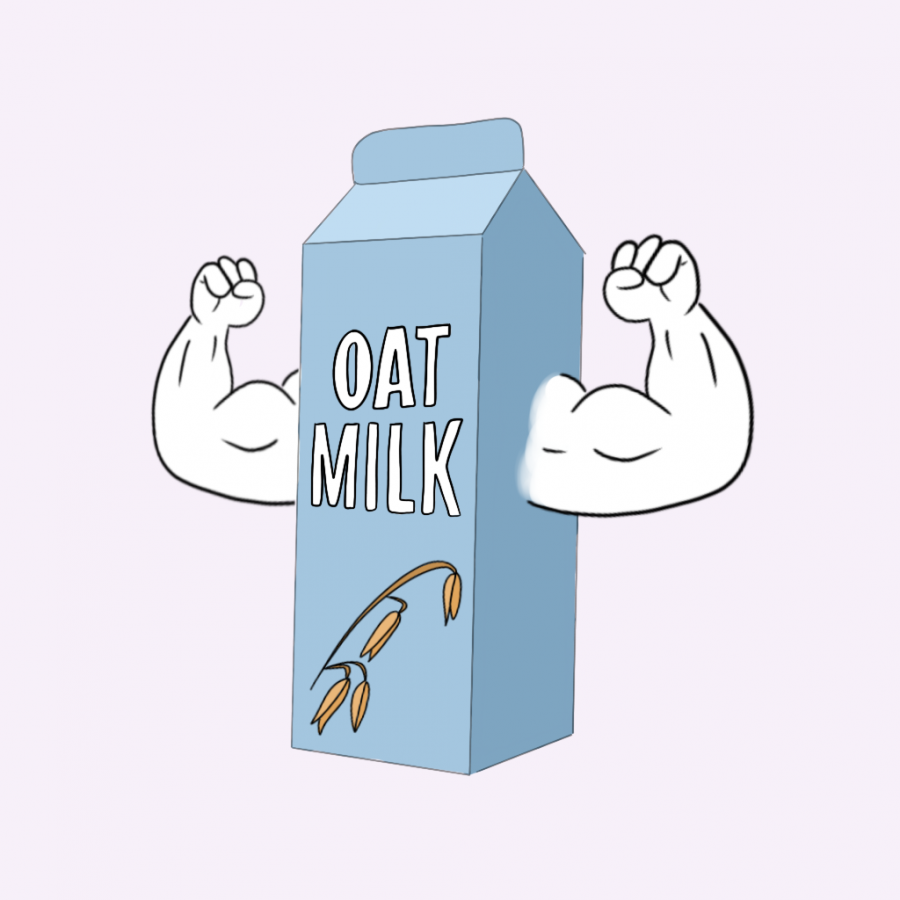Non-dairy milks: a breakdown
November 3, 2021
Dairy-free milk has become increasingly popular among young people recently. As much as 41% of US households now buy dairy-free milk, according to the Good Food Institute. These milk alternatives have been growing in popularity because of Millennials and Gen Z’s interest in veganism, a form of dieting without animal products, as they allow for an animal-free way of using the drink in cooking and beverages.
Oat milk has been the most popular for Madison. It has an extremely similar taste to dairy milk, alongside a more cereal-like aftertaste.
Almond milk has a much smoother texture than dairy milk, almost like drinking olive oil, and has a much more subtle taste. There have been concerns over the milk’s environmental impact, as many of the farms dedicated to almonds were originally wetlands. Due to this, the production and popularity of almond milk is fairly dangerous to many ecosystems throughout the world. However, so long as it is ethically sourced, almond milk is perfectly safe to drink.
Soy milk tastes extremely similar to cow’s milk while having a thicker texture than most alternatives; the best dairy-free milk for savory cooking. Unfortunately, soy milk has recently been considered unhealthy for men by many, because it contains phytoestrogen, a chemical that imitates estrogen in plant life. Due to this, many fear that soy milk may increase the levels of estrogen in men. However, there is extremely minimal evidence that indicates adverse effects of soy milk in men, with much of the scientific research stating that soy milk produces no change in testosterone levels and may even protect against some forms of cancer.
Coconut milk is much more similar to cream than cow’s milk in terms of texture and is extremely sweet, with a very pronounced flavor that doesn’t resemble dairy milk. The dairy substitute has been traditionally used in South Asian cooking or sweet dishes, but it works in many other cuisines too. However, if someone were to give up dairy milk for health reasons, coconut milk wouldn’t be a very good replacement. The milk has an extremely high amount of fermented carbohydrates and calories, meaning that consuming too much of it can result in digestive issues and weight gain. So long as it is used in moderation though, coconut milk is safe.
Dairy-free milk is here to stay, and with the various tastes and textures that they provide, these milk substitutes provide a welcome change from the norm.



